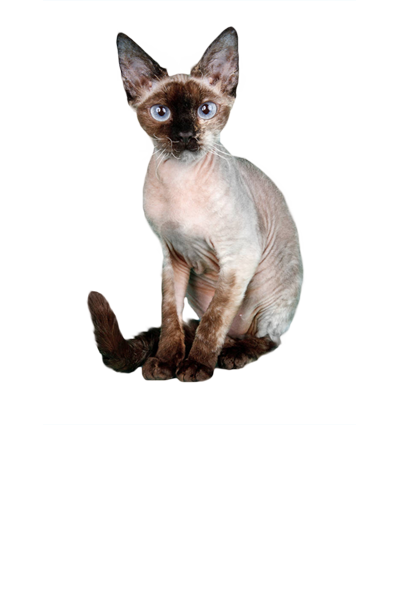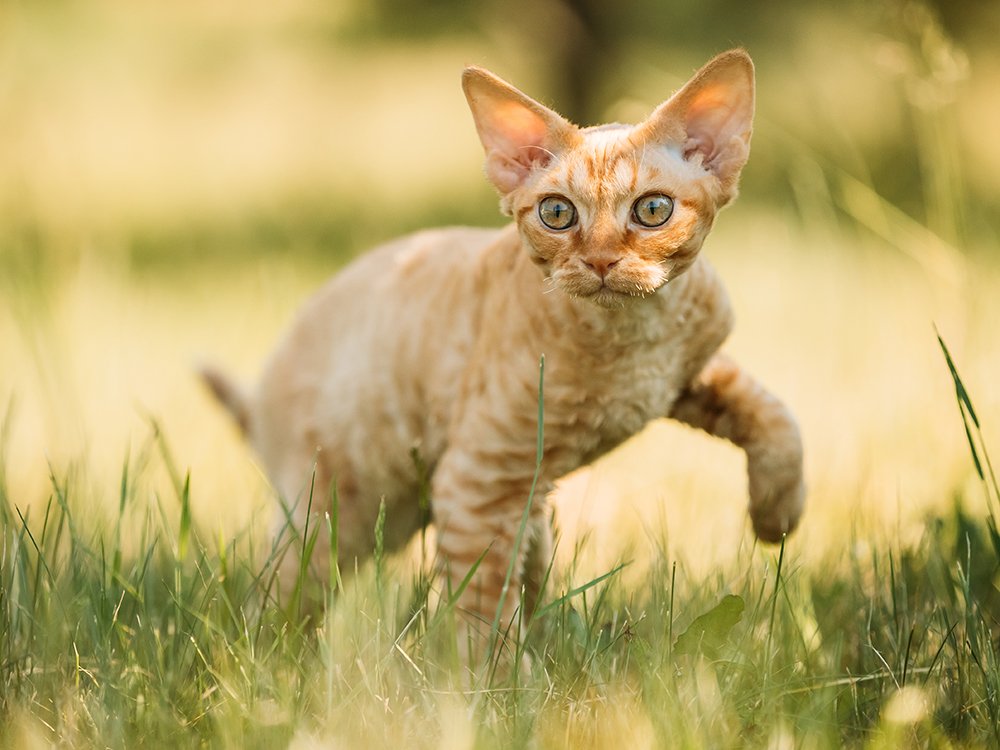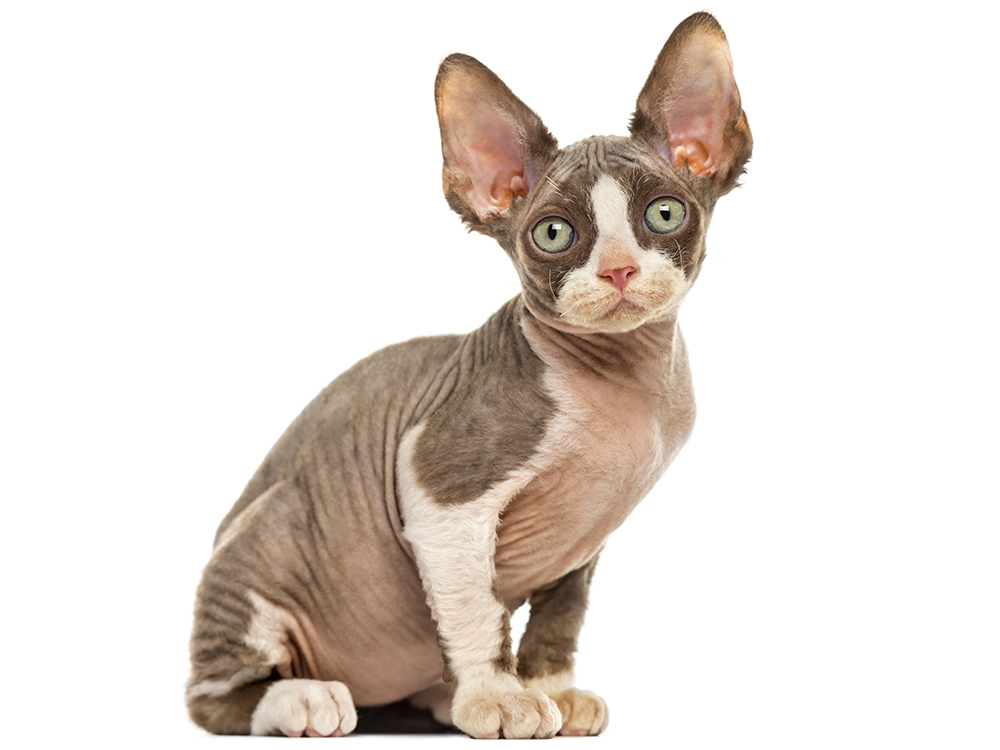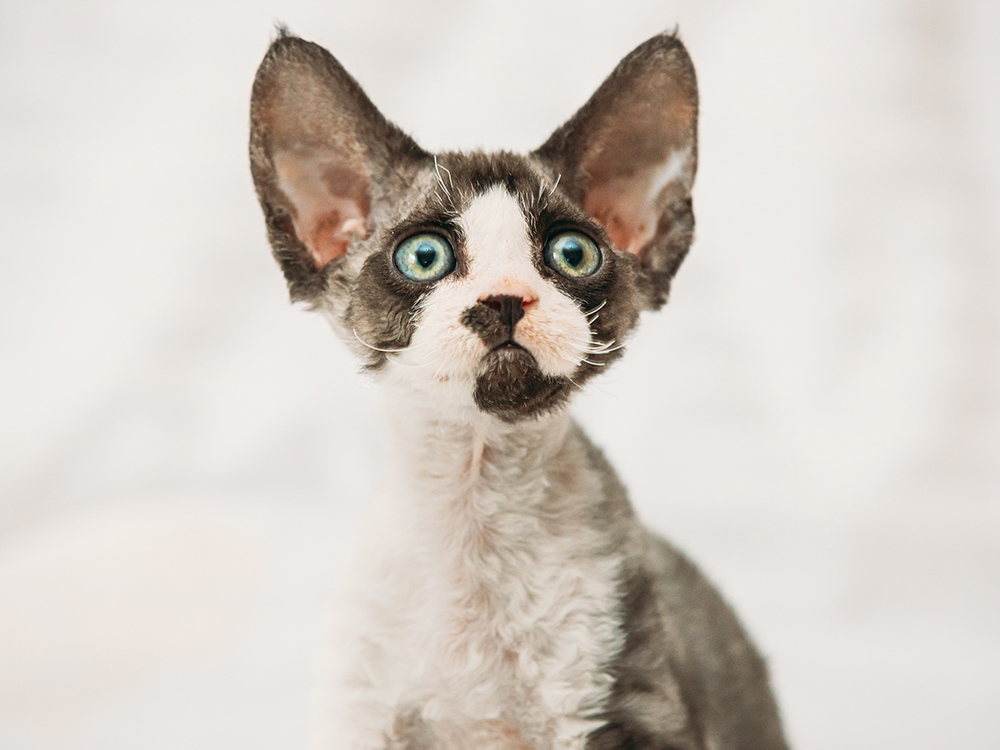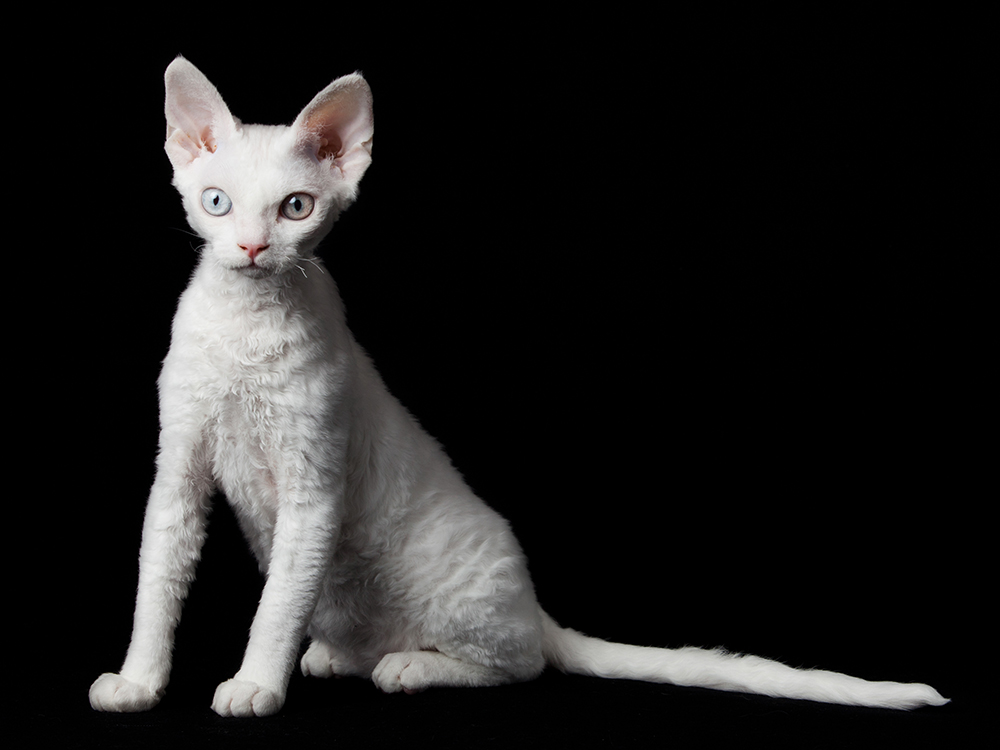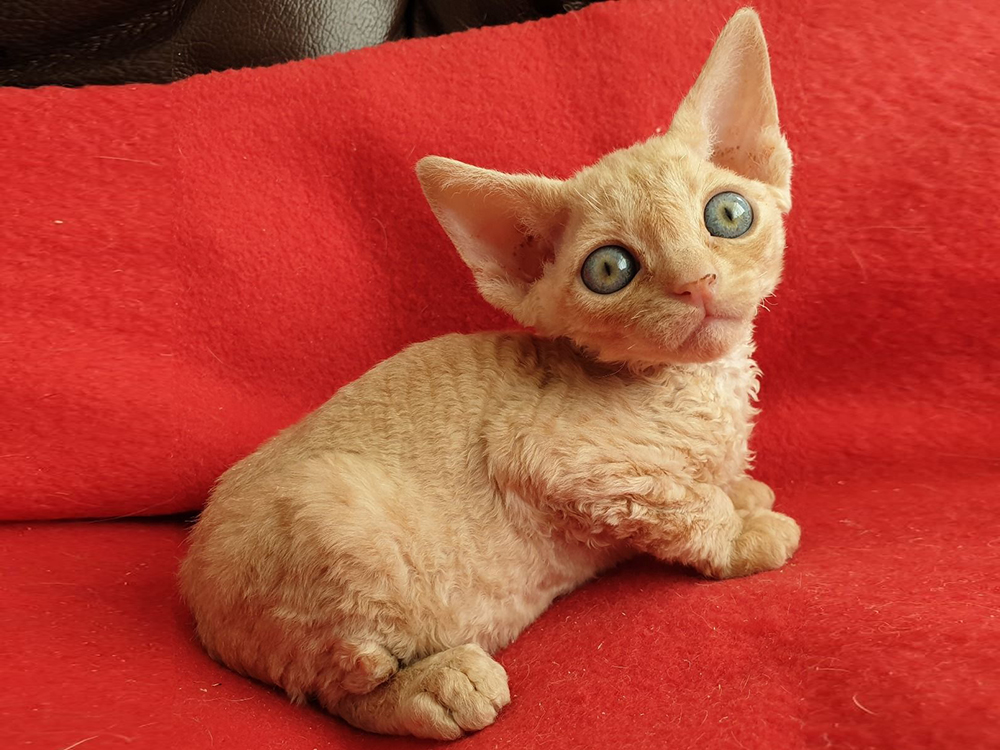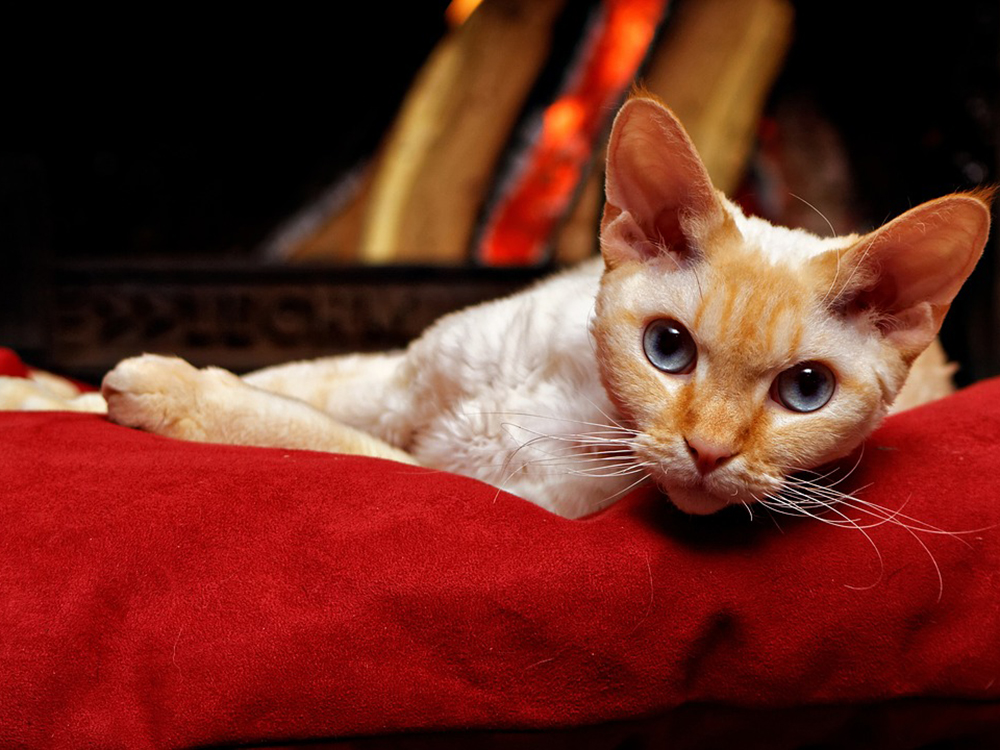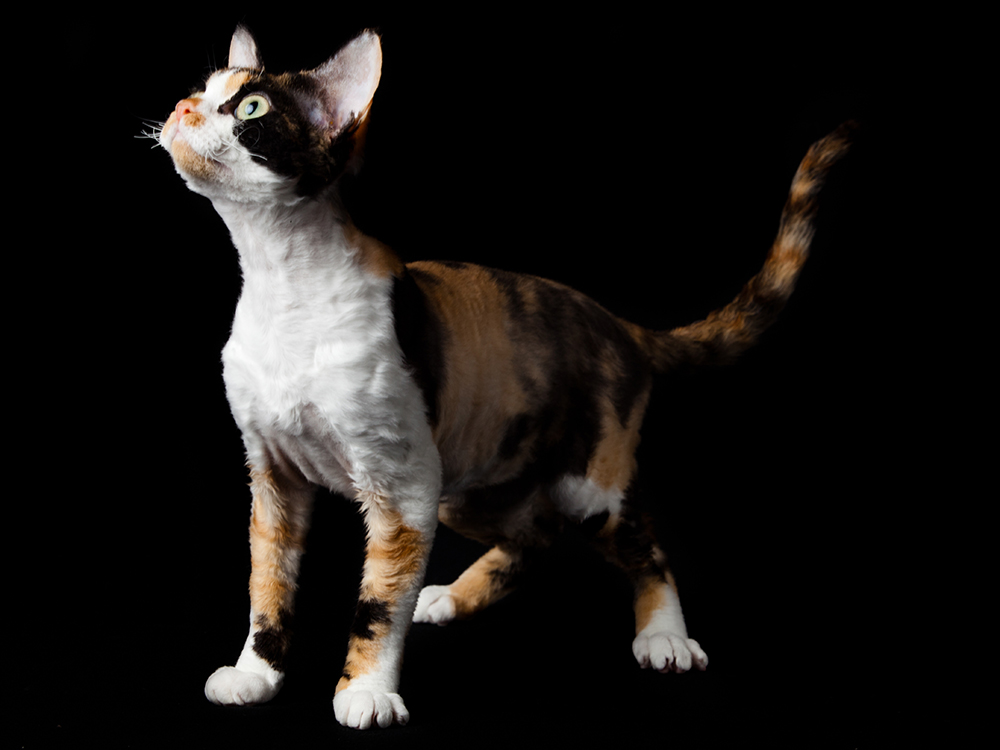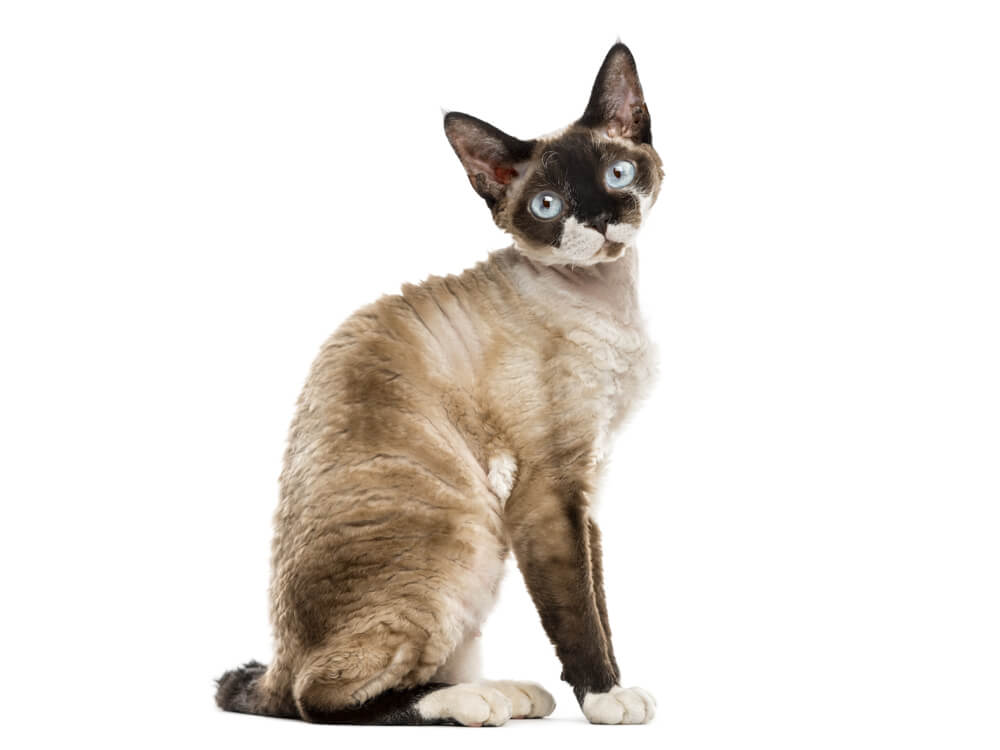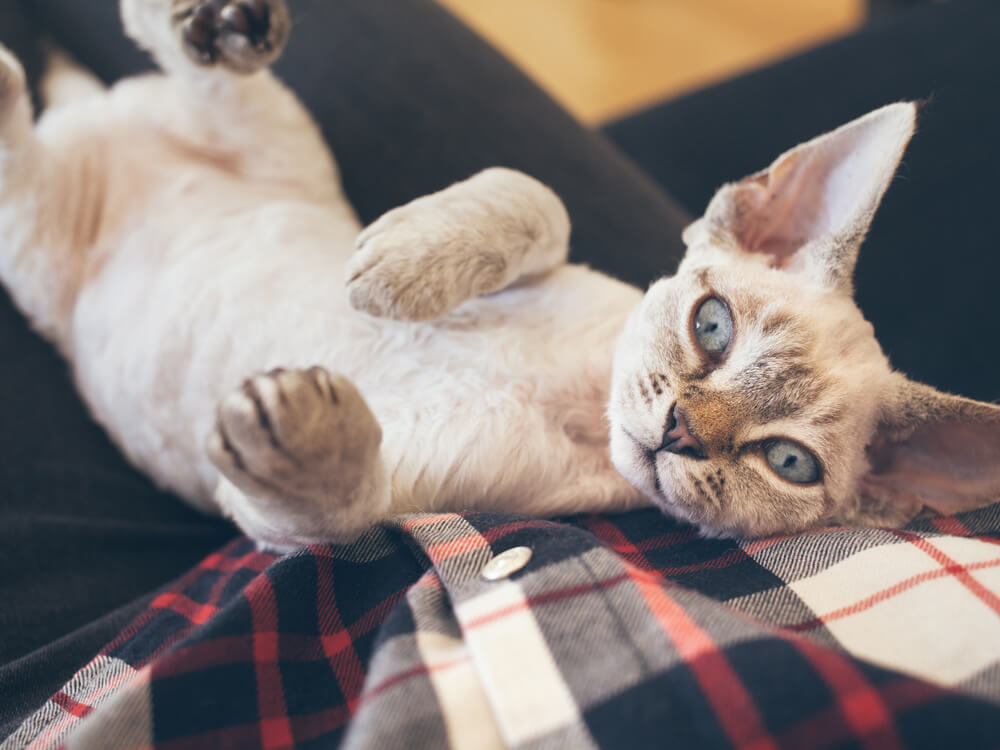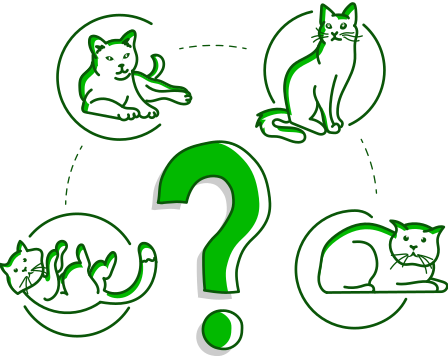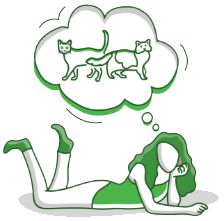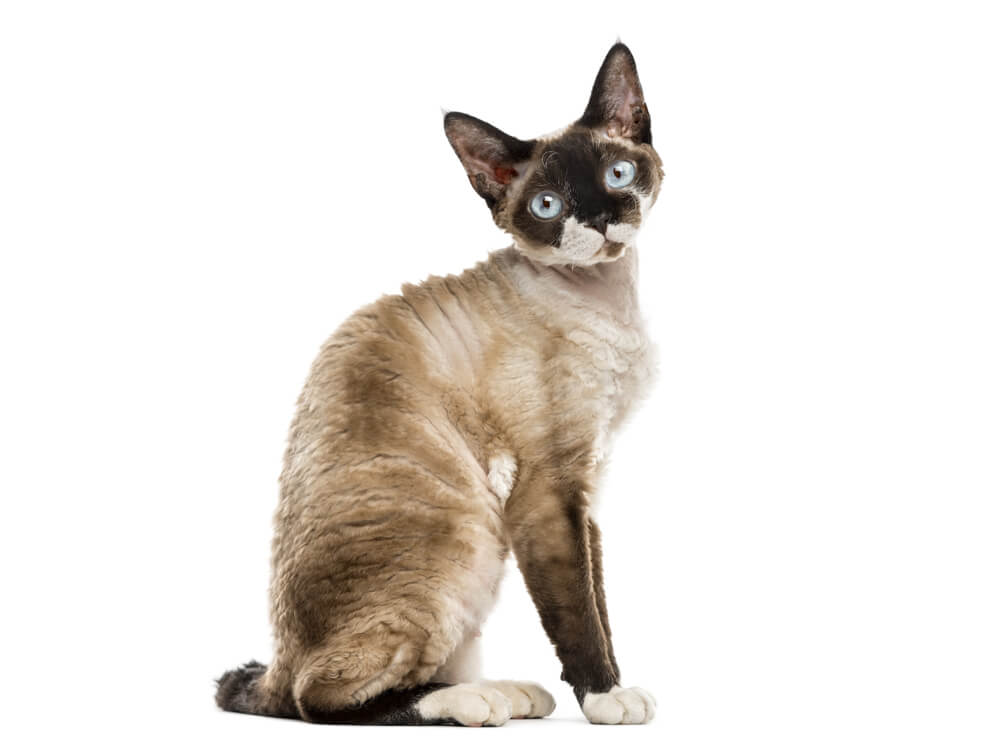
Devon Rex Breed Pictures
Vital Breed Stats
| Weight: | 3 - 5 kg M | 3 - 5 kg F |
| Life Expectancy: | 12 - 15 years |
Breed Characteristics
| Size: |  |
| Grooming: |  |
| Trainability: |  |
| Good with Children: |  |
| Good with other pets: |  |
| Affectionate: |  |
| Active Level: |  |
Give a thumbs up if you love the Devon Rex

0
More About the Breed
History
The Devon Rex originates from the county of Devon in the UK. It is a relatively new breed, having emerged in the late 1950s. Berly Cox’s tortie and white cat had mated with a feral tom and produced a litter that had a different-looking kitten. The odd one, named Kirlee, had a brown and black coat that had tight curls. It was later named as the Devon Rex after its place of origin. The rex part of its name is based on rex rabbits, which have curly fur.
The Cornish Rex, which emerged years earlier, was thought to have the same curl-inducing gene as the Devon. However, Kirlee’s coat was rather tousled and his whiskers rather patchy. Despite this, the Devon and the Cornish were mated to see whether the offspring would be similarly curly haired. The result revealed otherwise, leading Devon Rex breeders to believe the coats of both felines were influenced by different genes.
Breeders then went on to develop the Devon as a distinct breed. As such, Kirlee is the progenitor of all existing Devons today. However, both felines were lumped in the same classification until 1984. It was then acknowledged as a distinct feline breed and gradually grew in popularity as a family companion.
Appearance and Grooming
The Devon Rex shares a number of similarities with the Cornish Rex. Its well-muscled body size also ranges from small to medium. It also has a wedge-shaped head and high cheekbones. However, its back is not as arched as that of the Rex from Cornwall. Its large ears are also set lower on its head and its whiskers, as mentioned, are rather stubbly.
This distinct facial trait has earned it the moniker “designer stubble.” It is rather delicate as these whiskers are likely to break when not carefully handled during grooming. That being said, the Devon has large oval-shaped eyes with an expression that make it seemingly the “windows to the soul.”
It also has a broad chest and its legs are long and slender. Its tail is long and tapering. Its hind legs are longer that the front legs. These end in small, oval-shaped feet.
As for its rippling coat, which is its most striking feature, it is short and dense but soft to the touch. This is because it does not have guard hairs, which also means it feels the hot or cold more than the average kitty. On whether this curly cat is hypoallergenic, it is not. Its coat can come in any colour and pattern.
Grooming this cat is easy due to its short coat. Giving the Devon Rex bath should also be done regularly. This is to eliminate the oil residue that may build up due to the lack of outer coat. Its ears also need to be cleaned regularly, about once weekly, to prevent bacteria build-up.
Temperament and Intelligence
The Devon is one energetic and intelligent feline. It loves to play as much as it can during its waking hours, and may even indulge in some mischief. It loves attention and can be quite demanding of it from its owners. This people-loving breed likes to be involved in its family’s activities. It may hop up to its human’s shoulder and closely supervise what he or she is doing. It also loves to sit on laps and cuddle with its owners at night. It also likes to play fetch.
As the Devon Rex tends to form strong bonds with its owners, it does not like to be left alone. It is not talkative like the Cornish Rex, though. When it speaks, it does so with a little chirping sound. But beware of its tricky streak – it will swipe food left out in the open when its owner is not looking. Its penchant for mischief has earned it the moniker “monkey in a cat suit.”
Being an active cat, the Devon is a fantastic addition to similarly active families. It is good with children and travels well.
Nutrition and Feeding
The Devon Rex should be provided a nutritious diet that fulfils its daily requirements. It should be consistently given the same food following the same feeding schedule. If there are changes to its regimen, those must be done gradually to prevent stomach upset.
The serving portions should depend on the Devon’s weight, age, and activity level. Its meals must include at least 25% protein and just 5% carbohydrates.
Health and Exercise
- Hip dysplasia
- Slipping kneecaps
- Congenital myasthenic syndrome
Cost of Ownership
A well-bred Devon Rex for sale can be acquired at a cost ranging between £200 and £500 or more. Average insurance expenses would cost £16 (basic) or £25 (lifetime) monthly. Food costs may range from £15-£20 each month. For vaccinations, boosters, annual checks and other veterinary costs, pet care costs may add up to more than £400 each year.
On average, a Devon owner will spend about £30-£45 per month. The insurance costs can also affect this estimate. For its entire lifetime (12-16 years), the expenses can be as low as £4,320 to as high as £8,640 overall. This estimate does not include the initial costs incurred in acquiring this cat.
Is a Devon Rex Right for You?
- This feline is very playful and active and may even get into mischief. Active families are best suited to this kitty.
- Its attention seeking tendency may be demanding for owners. This cat does not like to be left alone for long.
- The Devon Rex’s coat is easy to groom and requires baths every now and then.
- It is sensitive to temperature and can develop sunburns easily when left outdoors for extended periods.
